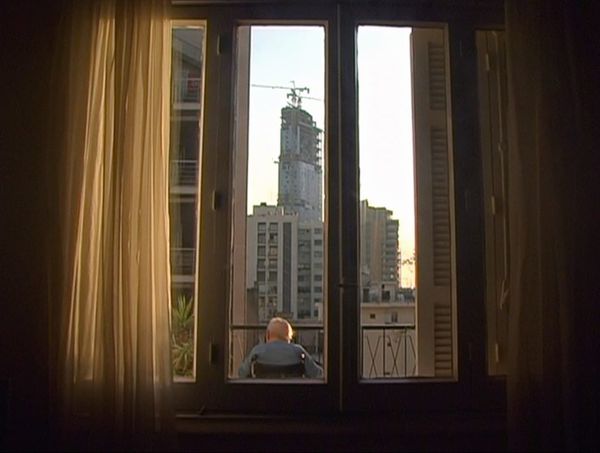Eye For Film >> Movies >> The Swing (2018) Film Review
The Swing
Reviewed by: Amber Wilkinson

If the past is another country, what does the future hold? This very personal documentary by Cyril Aris suggests old age can become an island with a population of one.
For his first feature, Aris turns his camera on his elderly grandparents Viviane and Antoine. In many ways, they are a typical ageing couple, with just one difference - Viviane is aware of the death of one of their daughters, while Antoine is not. This 'secret' was a collective family decision, as the extended clan feared that Antoine, with heart problems, would not survive the revelation. Whenever the subject of Anne-Marie comes up, the family stick to the story that she is travelling in South America.

The upshot of this may well protect Antoine - although there are hints throughout the film that he may be more aware of what is going on than he acknowledges - but we see how it takes its toll on Viviane. Her husband is evidently the more spiritual of the two of them, often thanking God and more than ready to meet his maker. Viviane, it seems, would rather be transported by Antoine, frequently asking him to tell her a story, while keeping her own tale of tragedy locked up. Aris gently invites us to enter this moral maze at the same time as celebrating his grandparents' different types of stoicism.
Pressures build. As Antoine's health starts to falter, his hearing becomes worse and both he and Viviane find themselves increasingly in their own separate worlds even when they are together. Although on the face of it this is the story of a single family, the bigger picture that emerges is much more universal. it captures something of the sort of pre-grief the elderly feel as they near the end of life - a sadness not about death but about saying goodbye to those around them, a mirror of the family's grief that will follow when they're gone. It also shines a light on the importance of communication - and how a breakdown in that, either through secret-keeping or physical limitations, can have profound effects.
Aris is observant and adept at balancing emotions, knowing when to pull the camera viewpoint back to give both his subjects and the viewer some space. It's also evident that the camera often offers a fillip for Viviane, who seems to relish its presence not least because it confirms her own existence. Although this is, on the face of it, a small movie, it offers a window to big ideas of morality and mortality that will resonate with families everywhere.
Reviewed on: 09 Jul 2018














